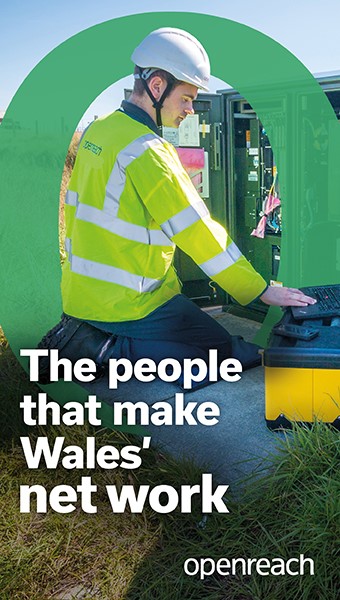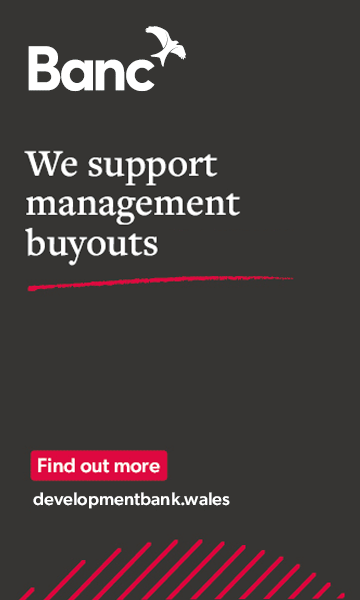Despite the current economic conditions, over two thirds (70%) of UK businesses are confident about growth over the next three years, according to the latest Santander Trade Barometer.
However, confidence has fallen for the first time since it hit a low of 59% in autumn 2020, with fears around high interest rates, inflation, energy costs, and UK economic conditions starting to materialise. Falling confidence has impacted UK-only businesses more, with only 64% of these companies expecting growth versus 72% of international businesses. Confidence among regional businesses has fallen in all regions except Scotland, which has risen almost 10% from 69% to 78%. The South West and Wales saw the biggest fall, down 16% since Spring 2022 to 63%.
Businesses surveyed have largely recovered from the covid pandemic – adapting to operate successfully amid its lingering effects – with more than half (54%) saying that performance had accelerated over the last 12 months. Eighty-six per cent of businesses say they are well placed, or at least coping, in the current economic environment, however 7% have said that they are now starting to struggle.
Investment plans remain resilient for now, with almost half (47%) of business planning to hire new staff, 43% investing in staff training, almost a third (31%) planning to invest in R&D, and over a quarter (26%) focusing on digital transformation – all up on spring 2022 Trade Barometer figures.
Businesses respond to rising costs
Despite confidence and resilient investment plans, inflation fears have moved to centre-stage, with another sharp spike in concern, up to 62% (from 43% in spring this year). Going hand-in-hand with this, concerns about interest rate rises have grown sharply, hitting 35%, compared to just 26% six months ago.
Rising energy costs are now a concern for over half (57%) of businesses and 52% of businesses worry an economic slowdown in the UK will cause them problems, with fears for the global economic climate (42%) growing too.
A common response to these negative impacts is for businesses to increase the price of their products and services (49%). Three-quarters of businesses say the costs of goods and materials have increased in the past month and the same expect these costs to rise next year.
Rising energy costs (56%), alongside labour (47%) and transportation costs (43%), are also concerns. Delays in goods reaching them (for 61% of businesses) amplify the concerns. Rising input costs are affecting manufacturing businesses the most and rising transportation costs are impacting wholesale and retail businesses.
Looking beyond the UK, falls and fluctuations in the value of sterling against foreign currencies are giving businesses increased cause for concern, with 31% reporting this to be an issue now compared to just 24% last spring. Small and medium-sized businesses (SMEs) making overseas purchases in foreign currency and importing into the UK are particularly vulnerable to this given the current unfavourable exchange rate.
John Carroll, Head of International & Transactional Banking, Santander UK said:
“Faced with rising inflation, rising energy and transport costs, and a difficult winter trading season ahead, it’s reassuring to see UK companies continue to remain resilient as they head into a challenging operating environment. But businesses need support to help them to navigate the challenges of rising costs, tough UK economic conditions, and delays in receiving goods.”
Opportunities to recover
There is hope for recovery as the barometer examined the challenges and opportunities for growth in 2023. Almost half (44%) of UK companies cite growth in both new and existing international markets as a key driver of recovery from the current challenges. Other drivers of growth include domestic growth (32%), diversification (29%), and digital growth (21%).
Looking at international markets, 40% of all businesses say that these have become more important due to current challenges. Anxious businesses might be expected to be cautious about international expansion, but many regard export markets as key to protecting themselves against turbulence, with 71% explaining that exporting will reduce their reliance on the UK economy, 64% feel international markets have a greater potential then the UK, and almost a third (31%) say their products or services are better suited to non-UK markets.
John Carroll added:
“It is encouraging to see that businesses are buoyed by the opportunity to expand overseas and key to enabling this growth is the ability to attract and retain the staff they need to succeed, both in the UK and abroad. We’ve seen first-hand that international trade can play an important role in helping UK businesses to remain resilient and with the right support and partners, internationally trading businesses can prosper.”
Challenges to growth and the labour market
The barometer shows the ability to attract the right staff (73%) is regarded as the single most important factor driving growth over the next three years for the third consecutive barometer running2. The macro-economic outlook in the UK (71%) is important too, alongside factors such as the wider EU and global economies (64%) and transport costs (64%).
The industries facing the greatest challenge in attracting and retaining staff are technology, media, telecoms (TMT), ICT and wholesale and retail amid a tough labour market for both skilled and unskilled workers. Public service providers are struggling too.
International trade opportunities
The EU is once again nudging ahead as the region with the best growth prospects (42%), pushing ahead of North America (40%). On a country basis, the US leads (35%), followed by Germany (19%) and Australia (18%), which has overtaken China and France, to offer the most attractive growth prospects in the next 12 months.
With international expansion now cited by businesses as a key driver of UK economic recovery, businesses are honest about the key challenges in international markets which include transport costs (40%), bureaucracy (37%) and the difficulty of finding trusted partners (29%). Among the main concerns with transportation, three-quarters of businesses (74%) say shipping delays, 58% cite rising container costs, over half (55%) worry about rising air freight costs, and half (51%) about the costs associated with red tape.
To support UK companies looking to expand overseas, Santander UK recently launched Santander Navigator, a digital subscription platform. The platform provides expertise and knowledge collated by Santander Corporate & Commercial Banking’s international team3, including the research from the Trade Barometer, to help UK businesses overcome international trade-related obstacles and understand the attributes of doing business in a new market. Businesses can sign up and pay a subscription to access a personalised service, based on their individual needs, and to help achieve their international expansion ambitions. Find out more about Santander Navigator here: www.santandernavigator.co.uk.











